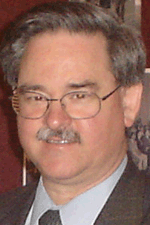Our First General Assembly: The Event, the People and the Significance
The Event
Our first General Assembly was a meeting of representatives of several congregations in North Carolina, Georgia, and Tennessee. Twenty-one delegates gathered on Friday and Saturday, January 26 and 27, 1906, in the community of Camp Creek, North Carolina. According to our earliest history, they met “to consider questions of importance and to search the Bible for additional light and knowledge.”
The home in which they convened was in the heart of the Unicoi Mountains where God had birthed this movement. It was not far from the Shearer Schoolhouse where holiness had been preached in 1896. It was a short walk from where believers had experienced an outpouring of the Holy Spirit and had endured severe persecution including the burning of their house of worship. It was also near the home of W.F. Bryant, in which the Holiness Church had been organized in 1902 and where A.J. Tomlinson had joined in 1903 transforming them into a missionary force in the midst of whitened harvest fields.
Delegates to the Assembly discussed various issues, came to a consensus, recommended their conclusions to the local churches, and agreed to meet again the next year. Before they left for home that Saturday evening, a fierce snow storm made their fellowship seem all the warmer and the world all the more challenging. A.J. Tomlinson reflected in his journal, “The meeting on the whole was noticeable of the love to one another and the unity. . . ”
The People
We do not know why these particular 21 people attended. Some lived nearby and others were their most trusted leaders. But we do know that, as a whole, they were people of purpose, of passion, of pragmatism, and of providence.
They were people of purpose in that they had a reason to get together. Those first Assembly delegates did not see their work as organizing a human institution; they had searched the Scriptures and were confident that they had Biblical precedent for their actions. There were questions to answer, problems to solve, and a world to win for Jesus Christ. So they came to this meeting to search the Scriptures, to find God’s will, and to work together.
These delegates were also people with passion—a passion for unity, for understanding God’s Word, and for the harvest. Evangelism was particularly dear to their hearts. Their minutes record that after hearing reports of what had been done the previous year, they consecrated themselves, considered the ripened harvest, and wept as they committed themselves to press into every open door.
Their passion to win the lost filled other discussions as well. One of their reasons for shunning the use of tobacco was that the money saved by giving up the habit could better be used to spread the Gospel. And they saw the establishing of Sunday schools in unreached areas as a means of beginning new churches.
Although they had great ideas, their idealism did not get in the way of down-to-earth pragmatism. Grant Wacker, a Pentecostalism historian, notes that all the while Pentecostals were looking heavenward they had one foot firmly planted in the realities of this world. An example is seen in their recommendation for prayer meetings. The delegates agreed that someone “led by the Holy Spirit or selected by the church” should be responsible. Clearly they preferred for someone led by the Spirit to lead prayer meetings. But if such a person could not be found, prayer meetings were still necessary and, so the church should select someone.
Their pragmatism is also evident in their discussion of the use of tobacco. Here, they did not have chapter and verse prohibiting tobacco. But they knew there were good reasons to abstain.
They noted that tobacco is offensive, weakens the nervous system, is a relative of drunkenness, is a bad influence and example for the young, and the money could better be used to cloth the poor, spread the Gospel, and improve their homes. Finally, they simply could not believe that Jesus would use tobacco. They encouraged a pastoral approach to those bound by the habit, but they also recognized the power of accountability and called for the deacons to report those who had been delivered from its use.
Finally they were people of providence. By this, I mean that they were continually looking for God to be at work among them. They expected to be led by the Spirit and they expected new light as they searched the Scriptures. Their concluding decision was to meet again the next year “as the providences of God and His Spirit may direct.”
The Significance
That first Assembly was far more significant than simply a memorable date on the calendar. It was an important step away from a congregational model of church government toward a more central and episcopal government. That transition was not completed in 1906, but the delegates took a major step.
Particularly important is the model the first Assembly set for our decision making. It introduced a structure that allowed issues to be debated, voices to be heard, Scripture to be searched and the will of God to be sought. It recognized the importance of hearing from our brothers and sisters—hearing that is more than just giving an opportunity to speak but hearing that listens, respects others’ voices even when they differ from ours, and trusts that God will speak through them. We do not simply allow others to speak so that we can have our turn. But we listen and ask God to use them to speak to all of us.
At the same time we are hearing from individuals, we also recognize the council of many is important. At its best, the General Assembly is not a place where one persuasive person causes all of us to move in a direction we would not ordinarily consider. Rather, we trust that among the body, there is discernment and wisdom and we are subject and accountable to one another.
The first Assembly also revealed a commitment to work collectively to win the world for Christ. Rather than going it alone, those first delegates agreed to enter the harvest together. This lesson applies not just to individuals but to congregations as well. We can do more with each other than by ourselves.
Finally, the first Assembly brought together the two truths that while we continually seek to be led by the Holy Spirit, the Word of God is foundational in all that we do. We must strive to allow the Holy Spirit not only to intervene in miraculous ways but also to illuminate the Word and direct us as we apply the Word to the world we live in and the congregations we serve.


